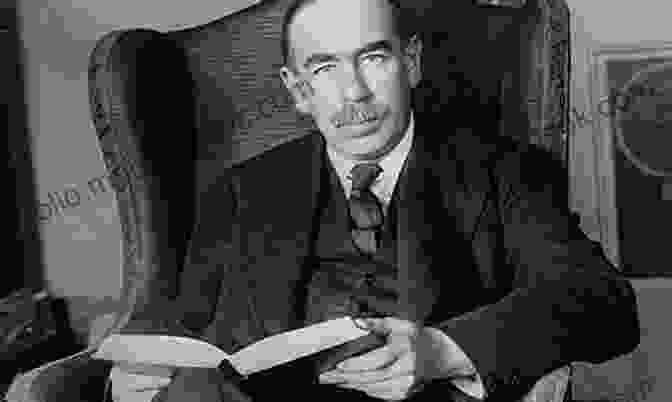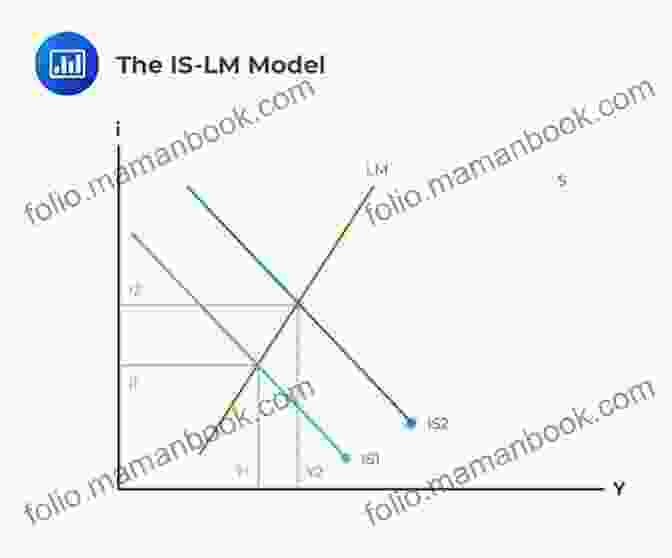John Maynard Keynes: A Revolutionary Economic Thinker and His Lasting Legacy

An to John Maynard Keynes
John Maynard Keynes (1883-1946) was a British economist whose ideas profoundly impacted economic thought and policymaking. He is widely regarded as one of the most influential economists of the 20th century, known for his groundbreaking contributions to macroeconomics and the development of Keynesian economics.
Keynes's economic theories emerged during the Great Depression of the 1930s, a period characterized by widespread unemployment, deflation, and economic stagnation. His ideas challenged the prevailing classical economic orthodoxy, which emphasized laissez-faire policies and balanced budgets.
4.3 out of 5
| Language | : | English |
| File size | : | 520 KB |
| Text-to-Speech | : | Enabled |
| Enhanced typesetting | : | Enabled |
| Print length | : | 209 pages |
| Lending | : | Enabled |
| Screen Reader | : | Supported |

Keynesian Economics: Revolutionizing Economic Thought
Keynes's revolutionary ideas were outlined in his seminal work, The General Theory of Employment, Interest, and Money (1936). This book introduced a new framework for understanding economic fluctuations and unemployment, emphasizing the role of aggregate demand in shaping economic outcomes.
Keynes argued that during an economic downturn, insufficient aggregate demand (total spending in the economy) could lead to a vicious cycle of falling output, declining employment, and deflation. He advocated for government intervention through fiscal policy (adjustments in government spending and taxation) and monetary policy (actions by the central bank to influence interest rates and the money supply) to increase aggregate demand and stimulate economic recovery.
Keynesian Policies in Practice
Keynesian policies gained widespread acceptance during the Great Depression and became the dominant economic paradigm throughout much of the post-war era. Governments implemented Keynesian fiscal and monetary measures to combat unemployment, promote economic growth, and stabilize the economy.
The effectiveness of Keynesian policies has been a subject of debate, with some economists arguing that they can lead to inflation and unsustainable budget deficits if not implemented judiciously. Nonetheless, Keynesian principles continue to influence economic policymaking, especially during economic downturns.
Keynes's Influence on Macroeconomics
Keynes's theories fundamentally changed the field of macroeconomics, which studies the behavior of the economy as a whole. His emphasis on aggregate demand and the multiplier effect highlighted the importance of understanding how changes in spending, investment, and government policies can affect overall economic output and employment.
Keynesian insights also led to the development of models such as the IS-LM model, which attempts to explain the relationship between interest rates and macroeconomic variables like output and inflation. These models provide economists with tools to analyze and forecast economic conditions.

Keynes in the Global Economic Context
Keynes's ideas had a profound impact not only on national economies but also on the global economic system. He played a key role in the Bretton Woods Conference in 1944, which established the International Monetary Fund (IMF) and the World Bank. These institutions were designed to promote global economic cooperation, stabilize exchange rates, and facilitate economic development.
Keynesian principles influenced the economic policies of international organizations like the IMF and the World Bank, shaping their approach to addressing global economic challenges such as poverty, inequality, and financial crises.
Relevance of Keynesian Economics Today
Despite the passage of time and the emergence of new economic theories, Keynesian economics remains an influential force in shaping economic policies. Its core principles, such as the importance of aggregate demand and the role of government intervention, continue to be debated and applied in response to economic challenges.
During the 2008 financial crisis and the subsequent Great Recession, Keynesian policies were widely implemented by governments around the world to stimulate economic recovery and prevent a prolonged downturn. This demonstrated the enduring relevance of Keynes's ideas in addressing economic crises and promoting economic stability.
Criticisms of Keynesian Economics
While Keynesian economics has been widely influential, it has also faced criticisms. Some economists argue that Keynesian policies can lead to inflation, unsustainable budget deficits, and market distortions. Others contend that Keynesian demand-side policies are less effective in addressing supply-side economic issues such as productivity growth and technological innovation.
These criticisms have led to the development of alternative economic theories and policy frameworks, such as monetarism, supply-side economics, and neoclassical economics. However, Keynesian principles continue to be a valuable tool for policymakers seeking to understand and manage economic fluctuations.
John Maynard Keynes was a visionary economist whose ideas revolutionized economic thought and transformed economic policymaking. His emphasis on aggregate demand, the multiplier effect, and government intervention provided a new understanding of economic fluctuations and highlighted the importance of active economic management.
Keynes's legacy continues to shape economic policies and debates today. His insights into macroeconomics and the global economy remain essential for policymakers seeking to promote economic growth, stability, and prosperity. Despite criticisms and the emergence of alternative economic theories, Keynesian economics endures as a cornerstone of economic thought and a testament to the enduring influence of one of the 20th century's most brilliant minds.
Further Reading
- The General Theory of Employment, Interest, and Money by John Maynard Keynes
- John Maynard Keynes: The Economist as Savior by Robert Skidelsky
- Keynes: The Uses and Abuses of Economic Theory by Samuel Brittan
- Macroeconomics: Theory and Policy by Olivier Blanchard and Gerhard Illing
- The International Monetary Fund: Its Evolution, Organization, and Activities by Margaret Garritsen de Vries
4.3 out of 5
| Language | : | English |
| File size | : | 520 KB |
| Text-to-Speech | : | Enabled |
| Enhanced typesetting | : | Enabled |
| Print length | : | 209 pages |
| Lending | : | Enabled |
| Screen Reader | : | Supported |
Do you want to contribute by writing guest posts on this blog?
Please contact us and send us a resume of previous articles that you have written.
 Top Book
Top Book Novel
Novel Fiction
Fiction Nonfiction
Nonfiction Literature
Literature Paperback
Paperback Hardcover
Hardcover E-book
E-book Audiobook
Audiobook Bestseller
Bestseller Classic
Classic Mystery
Mystery Thriller
Thriller Romance
Romance Fantasy
Fantasy Science Fiction
Science Fiction Biography
Biography Memoir
Memoir Autobiography
Autobiography Poetry
Poetry Drama
Drama Historical Fiction
Historical Fiction Self-help
Self-help Young Adult
Young Adult Childrens Books
Childrens Books Graphic Novel
Graphic Novel Anthology
Anthology Series
Series Encyclopedia
Encyclopedia Reference
Reference Guidebook
Guidebook Textbook
Textbook Workbook
Workbook Journal
Journal Diary
Diary Manuscript
Manuscript Folio
Folio Pulp Fiction
Pulp Fiction Short Stories
Short Stories Fairy Tales
Fairy Tales Fables
Fables Mythology
Mythology Philosophy
Philosophy Religion
Religion Spirituality
Spirituality Essays
Essays Critique
Critique Commentary
Commentary Glossary
Glossary Bibliography
Bibliography Index
Index Table of Contents
Table of Contents Preface
Preface Introduction
Introduction Foreword
Foreword Afterword
Afterword Appendices
Appendices Annotations
Annotations Footnotes
Footnotes Epilogue
Epilogue Prologue
Prologue Keanan Brand
Keanan Brand Jan Sheinker
Jan Sheinker Reprint Edition Kindle Edition
Reprint Edition Kindle Edition Kenneth E Hagin
Kenneth E Hagin Walt Dillard
Walt Dillard Mike Ryan
Mike Ryan Fabiana Volpato
Fabiana Volpato Robert Jackson Bennett
Robert Jackson Bennett Robert Weintraub
Robert Weintraub Alex Hutchinson
Alex Hutchinson Dan Abrams
Dan Abrams John Kim
John Kim Lynne Viti
Lynne Viti Robert D Ramsey
Robert D Ramsey David S Brody
David S Brody Julian Rathbone
Julian Rathbone Mark Stone
Mark Stone Randall Stewart
Randall Stewart James V Mcconnell
James V Mcconnell Millycent Alividzah
Millycent Alividzah
Light bulbAdvertise smarter! Our strategic ad space ensures maximum exposure. Reserve your spot today!

 David Foster WallaceComing Home: A Journey of Love, Loss, and Redemption by Vinayak Venkataraman
David Foster WallaceComing Home: A Journey of Love, Loss, and Redemption by Vinayak Venkataraman Stephen FosterFollow ·17.1k
Stephen FosterFollow ·17.1k Henry Wadsworth LongfellowFollow ·13.7k
Henry Wadsworth LongfellowFollow ·13.7k Ricky BellFollow ·11.9k
Ricky BellFollow ·11.9k Larry ReedFollow ·5k
Larry ReedFollow ·5k Grant HayesFollow ·9.1k
Grant HayesFollow ·9.1k Hugh ReedFollow ·5.3k
Hugh ReedFollow ·5.3k E.M. ForsterFollow ·2.9k
E.M. ForsterFollow ·2.9k Liam WardFollow ·16.3k
Liam WardFollow ·16.3k

 Dean Cox
Dean CoxHow to Make Decisions Easily & Effortlessly: The...
The Different Types of Decisions There...

 Gustavo Cox
Gustavo CoxThe End of World War II and the Birth of Baseball's...
The end of...

 Patrick Rothfuss
Patrick RothfussThe Dantes: An 11-Family Saga of Billionaires, Soulmates,...
The Dantes is an epic family saga that follows...

 Dylan Mitchell
Dylan MitchellSuper Friends: The Animated Adventures That Defined a...
In the vibrant landscape of American...

 Jamal Blair
Jamal BlairCollege For Students With Disabilities: We Do Belong
College can be a...
4.3 out of 5
| Language | : | English |
| File size | : | 520 KB |
| Text-to-Speech | : | Enabled |
| Enhanced typesetting | : | Enabled |
| Print length | : | 209 pages |
| Lending | : | Enabled |
| Screen Reader | : | Supported |












